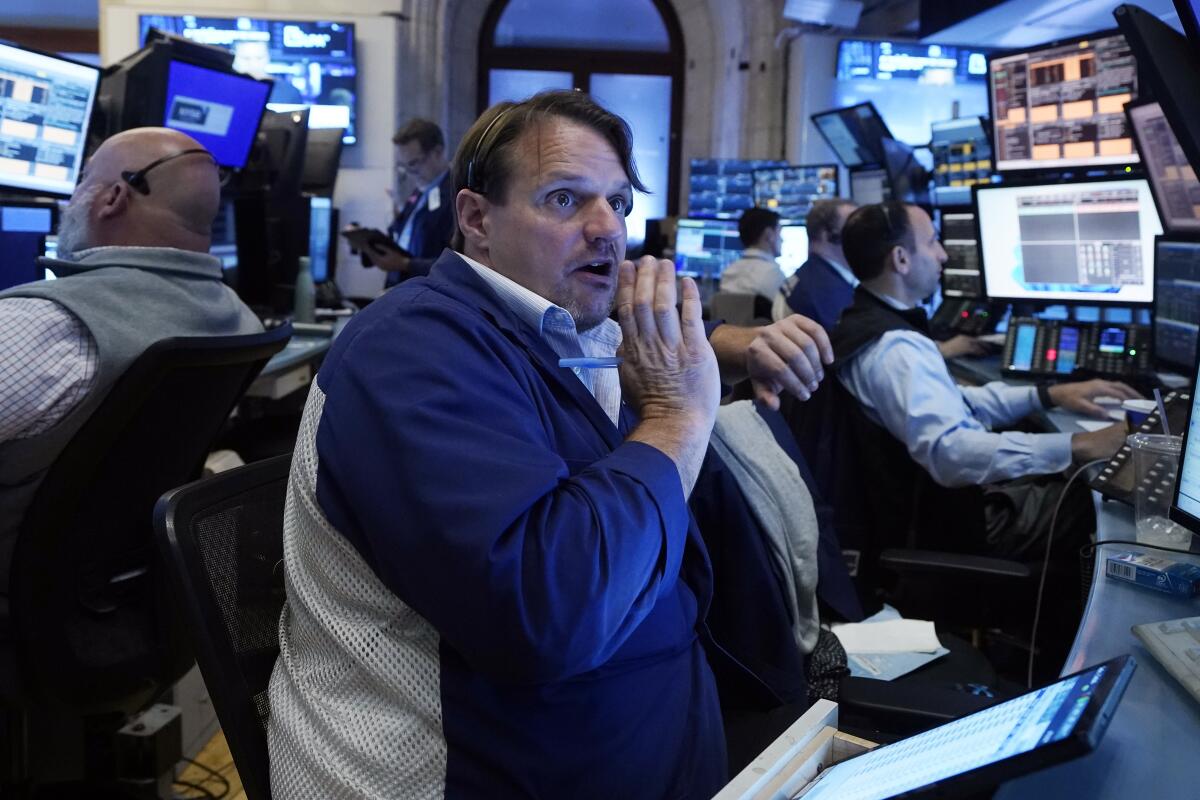Stocks slip and bond yields jump following a hotter-than-expected jobs report

NEW YORK — Stocks slipped and Treasury yields rose sharply Friday after the government released a jobs report whose headline numbers came in hotter than expected.
Overall, the report suggests markets may have to wait even longer for interest rate cuts from the Federal Reserve.
The Standard & Poor’s 500 fell 5.97 points, or 0.1%, to 5,346.99. The listless finish capped off an otherwise strong week for the benchmark index that included a record high. It rose 1.3% for the week.
The Nasdaq composite slipped 39.99 points, or 0.2%, to 17,133.13. It was a meek finish to a week where it gained 2.4%, while also reaching a record high.
The Dow Jones industrial average slipped 87.18 points, or 0.2%, to 38,798.99.
Smaller company stocks fared much worse. The Russell 2000 fell 1.1%.
U.S. employers added 272,000 jobs in May, up from April and greater than economists expected. The report also showed the unemployment rate rising for a second straight month. Overall, it signals continued strength in the jobs market, with some minor signs of weakening. The strong jobs market has supported consumer spending and the broader economy, but it has also been complicating the Federal Reserve’s path ahead for interest rates.
The yield on the 10-year Treasury jumped to 4.43% from 4.29% just before the jobs report was released. The two-year yield, which more closely tracks expectations for the Fed, jumped to 4.89% from 4.74% prior to the report’s release.
Wall Street is hoping for at least one cut to the Fed’s benchmark interest rate before the year ends. The central bank raised its interest rate to its highest level in more than two decades in an attempt to cool inflation to its target of 2%. However, inflation has been stubbornly hovering around 3% after dropping sharply over the last two years. A strong economy could keep fueling price increases.
“To those who are worried about inflation, especially the Federal Reserve, the report should raise concerns that wage pressure and sticky inflation is more likely to persist than be transitory,” said Chris Zaccarelli, chief investment officer for Independent Advisor Alliance.
A cooldown for the economy can drive inflation lower and prompt the Fed to deliver the cuts to interest rates that traders desire so much. The danger is if the slowdown for the economy overshoots and turns into a recession, which would ultimately hurt stock prices.
Economic data from earlier in the week had hinted that the economy could be cooling. The latest reports show that manufacturing contracted in May, worker productivity isn’t as strong as economists thought and job openings are dropping. Those softening signals, along with big gains for chip companies focusing on artificial-intelligence technology, helped push the market to record highs throughout the week.
Updates next week on prices at the wholesale and consumer levels will be closely watched by both investors and the Fed to get a clearer view of inflation’s path.
Fed officials are expected to hold interest rates steady at their meeting next week. After the jobs report came out, investors took even more bets off the table that the Fed would cut rates at its July meeting, according to data from CME Group.
Wall Street has also been monitoring earnings from retailers, which have shown that customers have been pulling back on items that aren’t essentials. Consumer spending has been the main support for the economy, but stubborn inflation is hurting consumers, especially those with lower incomes.
GameStop, the troubled video game retailer at the center of the meme stock craze, slumped 39.4% after reporting another quarterly loss and saying it planned to sell up to 75 million more shares.
Troise writes for the Associated Press.
More to Read
Inside the business of entertainment
The Wide Shot brings you news, analysis and insights on everything from streaming wars to production — and what it all means for the future.
You may occasionally receive promotional content from the Los Angeles Times.










